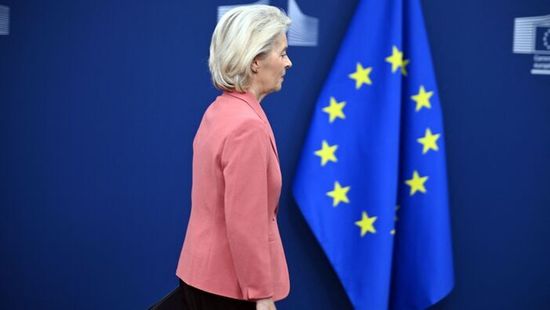Brussels has sent a payment demand to the Hungarian government, this time requesting 60 million euros. It is worth recalling that the European Court of Justice fined Hungary for its alleged violations of migration rules. Upon inquiry, Hungary's EU Affairs Ministry confirmed the report to our editorial team and provided the following response:
The government of Hungary received the European Commission’s payment demand yesterday. The Hungarian government will not pay the fine and will utilize all the available legal and political tools to defend the country’s borders and stop illegal migration. Hungary’s position has been clear for years: we will protect Hungary’s borders and will not allow Brussels to turn our country into a land of immigrants. Brussels continues to pursue pro-migration policies and has not abandoned its efforts to bring more migrants into Europe.
Gergely Gulyas, the minister in charge of the Prime Minister’s Office, recently remarked in an interview that the European Commission intends to collect these funds from Hungary, but “in the end, we will, from the Commission.”
The EU’s financial penalty is substantial, but it would cost even more if hundreds of thousands of migrants were here, destroying the country and undermining public safety, permanently altering the political nation that's evolved organically over the past centuries
– the minister told ATV in a recent interview. Constitutional lawyer Zoltán Lomnici Jr. previously stated that the court essentially represents Brussels' positio and, in a manner typical of the leading bureaucrats of EU institutions, is overstepping its authority. By employing legal tools, it is attempting to pressure Hungary into allowing migrants into the country. He added that this is happening because Hungary refuses to yield to Brussels' decisions, which would impose illegal immigrants on the country and lead to the creation of migrant ghettos.
So Brussels is simultaneously blackmailing and manipulating, deploying methods deliberately used by the judicial-technocratic apparatus to exert control or influence through EU proposals and coercion. Their aim is to directly or indirectly control, or sway national politicians’ mindest and ultimately dictate the decisions and actions of member state governments,
– the expert underlined.
Cover photo: Brussels demands a significant sum of money from Hungary (Photo: AFP)























Szóljon hozzá!
Jelenleg csak a hozzászólások egy kis részét látja. Hozzászóláshoz és a további kommentek megtekintéséhez lépjen be, vagy regisztráljon!